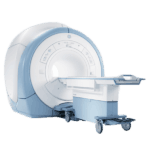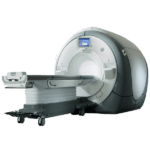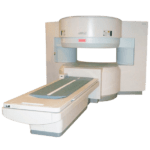A computer algorithm could be the key to implementing brain scans as a means to discover autism in adults
A computer algorithm could be the key to implementing brain scans as a means to discover autism in adults. The algorithm was developed at Advanced Telecommunications Research Institute International in Kyoto, Japan, and Brown University in Providence, Rhode Island. The way it works is that it classifies different subject sets using functional magnetic resonance imaging to analyze thousands of brain network functional connections.
Researchers examined scans of people with and without ASD, and the algorithm found 16 key interregional FC’s that allowed it to identify with high accuracy those who has been diagnosed with autism, and those who had not.
The algorithm was first developed with the aid of 181 adult volunteers at three sites in Japan, and was then applied to a group of 88 American adults at seven sites; all of the study volunteers with autism diagnoses had no intellectual disability. The classifier averaged 85% accuracy among the Japanese volunteers and 75% in the American volunteers. The researchers reported that the probability of such a degree of cross population performance purely by chance was 1.4 in a million.
Get Started
Request Pricing Today!
We’re here to help! Simply fill out the form to tell us a bit about your project. We’ll contact you to set up a conversation so we can discuss how we can best meet your needs. Thank you for considering us!
Great support & services
Save time and energy
Peace of mind
Risk reduction
The researchers also examined how it related to the Autism Diagnostic Observation Schedule (ADOS) which is a tool based on doctors interviews and observations of behavior. They found that the 16 FC’s identified by the classifier related to attributes of importance in ADOS. Also found, was 41% of the specific brain regions in which the 16 FC’s resided were within the cingulo opercular network, which helps in face and emotional processing. The study was published on April 14, 2016, in Nature Communications.
“The MRI scans required to gather the data were simple. Subjects only needed to spend about 10 minutes in the machine, and didn’t have to perform any special tasks; they just had to stay still and rest,” said co-corresponding author Professor Yuka Sasaki, Ph.D., of Brown University. “Despite that simplicity, and even though the classifier performed unprecedentedly well as a matter of research, it is not yet ready to be a clinical tool. The accuracy level needs to be much higher; 80% accuracy may not be useful in the real world.”
The researchers clarified that the developed ASD classifier does not distinguish individuals with major depressive disorder and attention deficit hyperactivity disorder from their controls, but moderately distinguishes patients with schizophrenia from their controls.



